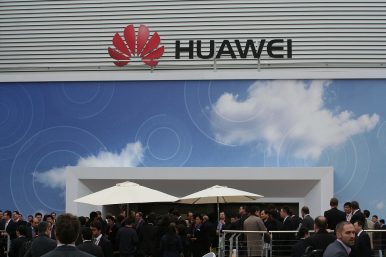By Robert Farley
Is the U.S. already struggling to force companies to comply with its ban on trade with the Chinese firm Huawei? A recent New York Times article suggests that the answers is yes, and that U.S. firms are already trying to find loopholes and work-arounds to continue trade with Huawei.
That the U.S. would run into enforcement problems isn’t surprising. The U.S. government has long struggled to force companies to abide by technology transfer rules. Firms typically choose to cooperate with China because they see some gain, whether access to workers, markets, or resources, and very often price concerns about technology theft into the deals they’re making. Forcing compliance with rules is difficult, because U.S. regulators don’t have much access to what actually happens on Chinese factory floors, and U.S. companies have little incentive to be transparent about their activities. Moreover, the U.S. government has long been loath to punish companies for suspected transgressions, and American companies have lots of tools for getting around the rules imposed by the Trump administration.
Enforcement difficulties speak to a basic problem with existing policy: U.S. companies have conflicting incentives with respect to working with China. Banning sales to Huawei has the potential to inflict a great deal of harm on the Chinese firm, but American companies also benefit from the trade. Even companies that sign on to the overall logic of the trade war can gain by free-riding, just as companies sold prohibited technology to the Soviet Union during the Cold War. And many American producers have expressed concern that China will develop technological work-around that will alleviate their dependence on U.S. goods.
This is an important speed bump on the path to weaponizing interdependence. Interdependence links not just states, but also constituencies within states. Those constituencies include not just private companies, but also state-owned enterprises, labor unions, hybrid organizations (higher education institutions in the United States, for example), and a variety of others who have benefited from the fruits of interdependence. Weaponizing interdependence requires the consent, or at least the acquiescence, of those constituencies. If the Trump administration cannot force U.S. companies to stop dealing with Huawei (through the myriad of shady means they have for continuing relations), then its efforts to weaponize interdependence may fail. It is possible, although not certain, that recognition of this may be motivating China’s apparent hard-line stance in upcoming trade negotiations. In any case, trade wars are fun and easy to win, until the companies waging them need to pay the costs.

No comments:
Post a Comment